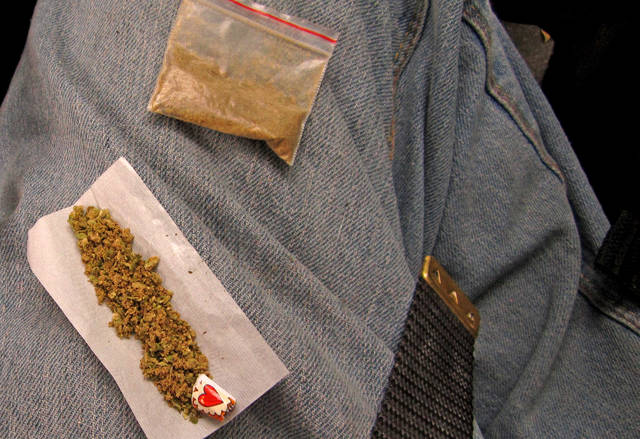Pittsburgh Public Schools students caught with small amounts of marijuana will no longer face an immediate suspension or risk being removed from their schools for six weeks or more.
Starting this month, first-time offenders in possession of less than 5 grams of marijuana will have the option of a five-day suspension in exchange for meeting with counselors and taking weeknight or Saturday drug treatment courses.
Students were suspended for 10 days under the old rules and would often be issued alternative placements through the district’s Student Achievement Center, which typically removes a student from their home school for at least 45 days.
“We’re reducing the number of students who are going to alternative placements, which means they get support and get back to school sooner,” said Melissa Friez, the district’s assistant superintendent of student support services.
“In September, we began talking about how do we ensure that students are receiving consequences, but more importantly how are we getting them that additional support and counseling that they need, as well as keeping them in school,” Friez said.
The board voted in January to reduce the initial suspension for first-time offenders to five days from 10. The policy applies only to marijuana. A student who brings opioids or other recreational drugs to school will not be treated with the same leniency, Friez said.
Last school year, 161 students were cited for marijuana possession, less than 1 percent of the district’s 22,300 students, officials said. About 80 students have been caught this year. The majority of students suspended for the offense since September agreed to participate in counseling and treatment programs.
Students have 60 days to take three evening courses or two Saturday counseling sessions. Those who fail to do so will be suspended for the additional five days.
The disciplinary changes build on broader efforts by the Pittsburgh district and schools nationwide to veer away from decades of zero tolerance policies, with harsh punitive measures for minor, nonviolent offenses deemed ineffective and potentially unnecessarily harmful to a child’s future.
Pittsburgh Public Schools became one of the first districts in Pennsylvania last summer to ban out-of-school suspensions for nonviolent, minor offenses in grades K-2.
School officials also try to avoid involving school police or filing charges with the juvenile justice system for small marijuana offenses.
“We have worked pretty closely with the DA’s office to ensure that, even if a child is charged with it, that we work with them to play it down,” Friez said. “Obviously, if you’re bringing a very large quantity of marijuana to school, that’s another story.”
Students caught with more than 5 grams of marijuana or bringing the drug to school more than once will face steeper consequences, including an alternative placement and possible criminal charges.
Nearly three-quarters of Allegheny County juveniles get referred to the system for nonviolent crimes such as drugs, theft or failure to pay court fees and restitution, data show.
“People think that juvenile court is just a slap on the wrist, but there’s long-term consequences,” such as being excluded from jobs, colleges and the military, Tiffany Sizemore-Thompson, assistant clinical professor at Duquesne University’s Juvenile Defender Clinic, told the Tribune-Review. “A dime bag of weed becomes something that can derail a child’s entire academic career.”








